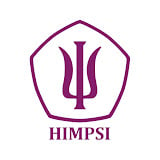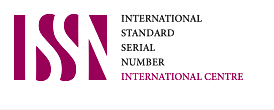THE ROLE OF PSYCHOLOGICAL CAPITAL AND JOB RESOURCES ON WORK ENGAGEMENT AMONG GENERATION Z EMPLOYEES
Abstract
This study aimed to examine the role of psychological capital and job resources on work engagement among Generation Z employees. The number of samples in this study was 137 Generation Z employees at one of the companies dominated by Generation Z employees. This research used a non-experiment quantitative approach by using the Utrecht Work Engagement Scale, Psychological Capital Questionnaire, and Job Demands-Resources Questionnaire. Data were analyzed using simple linear regression. The results showed that psychological capital and job resources had a positive significant effect on work engagement. In this research, it is known that the psychological capital dimension that had the biggest impact on the work engagement of Generation Z employees is resilience. This research also found that the job resources dimension that had the biggest impact on the work engagement of Generation Z employees is feedback This study implied that psychological capital and job resources are two important tools to increase work engagement among Generation Z employees.
Keywords
Full Text:
PDFReferences
Anatama, R. R. (2018). Psychological capital dan job resources sebagai prediktor terhadap work engagement. TAZKIYA: Journal of Psychology, 6(2), 53–68. https://doi.org/10.15408/tazkiya.v6i2.11004
Aprilianingsih, A., & Frianto, A. (2022). Pengaruh job demands & job resources terhadap work engagement pada tenaga kependidikan di perguruan tinggi. Jurnal Ilmu Manajemen, 10(1), 173–184. https://doi.org/10.26740/jim.v10n1.p173-184
Astisya, I. R., & Hadi, C. (2021). Pengaruh job demands dan job resources terhadap work engagement guru. Insight: Jurnal Pemikiran Dan Penelitian Psikologi, 17(1), 207–223. https://doi.org/10.32528/ins.v17i1.2170
Avey, J. B., Luthans, F., Smith, R. M., & Palmer, N. F. (2010). Impact of positive psychological capital on employee well-being over time. Journal of Occupational Health Psychology, 15(1), 17–28. https://doi.org/10.1037/a0016998
Bakker, A. B., & Demerouti, E. (2007). The job demands‐resources model: State of the art. Journal of Managerial Psychology, 22(3), 309–328. https://doi.org/10.1108/02683940710733115
Bakker, A. B., & Demerouti, E. (2008). Towards a model of work engagement. Career Development International, 13(3), 209–223. https://doi.org/10.1108/13620430810870476
Bakker, A. B., & Demerouti, E. (2014). Job Demands-Resources Theory. In Wellbeing (pp. 1–28). John Wiley & Sons, Ltd. https://doi.org/10.1002/9781118539415.wbwell019
Bakker, A. B., & Demerouti, E. (2017). Job demands–resources theory: Taking stock and looking forward. Journal of Occupational Health Psychology, 22(3), 273–285. https://doi.org/10.1037/ocp0000056
Cabrera-Aguilar, E., Zevallos-Francia, M., Morales-Gracia, M., Ramirez-Coronel, A. A., Morales-Gravia, S. B., Sairitupa-Sanchez, L., & Morales Gracia, W. C. (2023). Resilience and stress as predictors of work engagement: The mediating role of self-efficacy in nurses. Frontiers, 14. https://doi.org/10.3389/fpsyt.2023.1202048
Chavan, A. (2021). Feedback tools to improve employee engagement. Challenges & Opportunities.
Codrington, G., & Grant-Marshall, S. (2004). Mind the gap. Penguin Books.
Erza, E. K. (2020). Analisis kebutuhan informasi generasi z dalam akses informasi di media. Shaut al-Maktabah, 12(1), 72-84. https://doi.org/10.37108/shaut.v12i1.303
Fitri, F., Aiman, R., Angelica, C., Putri, N., & Saraswati, K. (2023). Career adaptability: Studi deskriptif pada karyawan gen z. Jurnal Ilmilah Psyche, 17(1), 39–56. https://doi.org/10.33557/jpsyche.v17i1.2510
Grimm, P. (2010). Wiley International Encyclopedia of marketing. John Wiley & Sons.
Hardianto, Y., & Pratiwi, E. A. (2022). Pengaruh psychological capital terhadap employee engagement pada perawat di icu rumah sakit “X”, Cimahi. Jurnal Diversita, 8(1), 32–37. https://doi.org/10.31289/diversita.v8i1.5130
Hastini, L. Y., Chairoel, L., & Fitri, M. E. Y. (2021). Analisis peranan literasi teknologi dan informasi sebagai variabel moderating dalam hubungan extraversion dan perencanaan karier generasi z di universitas Dharma Andalas. Jurnal Ekonomi dan Bisnis Dharma Andalas, 23(1), 74-83. https://doi.org/10.47233/jebd.v23i1.178
Hobfoll, S. E., Halbesleben, J., Neveu, J., & Westman, M. (2018). Conservation of resources in the organizational context: The reality of resources and their consequences. Annual Review of Organizational Psychology and Organizational Behavior, 5(1), 103–128. https://doi.org/10.1146/annurev-orgpsych-032117-104640
Iksan, N., Widodo, S. & Praningrum, P. (2020). Pengaruh sumber daya pekerjaan, sumber daya individu dan beban kerja terhadap oeterikatan kerja dan dampaknya pada kinerja pegawai sekretariat daerah kabupaten Seluma. The Manager Review, 2(2), 52-67. https://doi.org/10.33369/tmr.v2i2.13988
Joo, B., Lim, D., & Kim, S. (2016). Enhancing work engagement. Leadership & Organization Development Journal, 37(8), 1117–1134. https://doi.org/10.1108/LODJ-01-2015-0005
Kasparkova, L., Vaculik, M., Prochazka, J., & Schaufeli, W. B. (2018). Why resilient workers perform better: The roles of job satisfaction and work engagement. Journal of Workplace Behavioral Health, 33(1), 43–62. https://doi.org/10.1080/15555240.2018.1441719
Kelana, I. N. (2022). Pengaruh pengembangan sumber daya manusia dan komitmen organisasi terhadap kinerja pegawai melalui kepuasan kerja pada dinas perpustakaan daerah kabupaten Konawe. SIBATIK JOURNAL: Jurnal Ilmiah Bidang Sosial, Ekonomi, Budaya, Teknologi, Dan Pendidikan, 1(4), 463–472. https://doi.org/10.54443/sibatik.v1i4.55
Kementerian Pendidikan dan Kebudayaan. (2021, February 4). Gen Z dominan, apa maknanya bagi pendidikan kita? https://pskp.kemdikbud.go.id/produk/artikel/detail/3133/gen-z-dominan-apa-maknanya-bagi-pendidikan-kita
Kementerian Perindustrian. (2022, November 9). Siapkan indeks kepercayaan industri, kemenperin jamin keamanan data. Kementerian Perindustrian. https://kemenperin.go.id/artikel/23691/Siapkan-Indeks-Kepercayaan-Industri,-Kemenperin-Jamin-Keamanan-Data
Kotze, M. (2018). How job resources and personal resources influence work engagement and burnout. African Journal of Economic and Management Studies, 9(2), 148–162. https://doi.org/10.1108/AJEMS-05-2017-0096
Kumparan. (2023, June 27). Gen z di tempat kerja dan pandangannya terhadap kerja paruh waktu. https://kumparan.com/pengetahuan-umum/gen-z-di-tempat-kerja-dan-pandangannya-terhadap-kerja-paruh-waktu-20gKFA949Tx
Lesener, T., Gusy, B., & Wolter, C. (2019). The job demands-resources model: A meta-analytic review of longitudinal studies. Work & Stress, 33(1), 76–103. https://doi.org/10.1080/02678373.2018.1529065
Liputan6. (2023, August 14). Psikolog sebut generasi z sebagai game changer, berani berubah dan menghargai pengalaman. https://www.liputan6.com/lifestyle/read/5369139/psikolog-sebut-generasi-z-sebagai-game-changer-berani-berubah-dan-menghargai-pengalaman
Luthans, F., Youssef, C. M., & Avolio, B. J. (2007). Psycyhological capital: Developing the human competitive edge. Oxford University Press.
Ngwenya, B., & Pelser, T. (2020). Impact of psychological capital on employee engagement, job satisfaction and employee performance in the manufacturing sector in Zimbabwe. SA Journal of Industrial Psychology, 46(1), 1–12. https://doi.org/10.4102/sajip.v46i0.1781
Parhusip, A. A. (2021). Analisis kepuasan dan loyalitas pelanggan pengaruhnya terhadap keputusan menggunakan jasa layanan online (grab) di wilayah kota Medan. Accumulated Journal (Accounting and Management Research Edition), 3(2), 107-118. http://dx.doi.org/10.22303/accumulated.3.2.2021.107-118
Pinandito, I. S., & Savira, A. W. (2022). Peran empowering leadership terhadap intensi turnover karyawan generasi z di Indonesia. Gadjah Mada Journal of Professional Psychology (GamaJPP), 8(2), 278–298. https://doi.org/10.22146/gamajpp.76719
Pri, R., & Zamralita. (2018). Gambaran work engagement pada karyawan di PT EG (manufacturing industry). Jurnal Muara Ilmu Sosial, Humaniora, Dan Seni, 1(2), 295–303. https://doi.org/10.24912/jmishumsen.v1i2.981
Pudjiadi, Y. C., & Rositawati, S. (2022). Pengaruh psychological capital terhadap work engagement pada barista di kota Bandung. Bandung Conference Series: Psychology Science, 2(3), 658–665. https://doi.org/10.29313/bcsps.v2i3.2834
Ramadhani, Y. N., & Hadi, C. (2018). Pengaruh job demands-resources terhadap employee engagement pada staff account officer PT. X wilayah Jombang. Jurnal Psikologi Industri Dan Organisasi Universitas Airlangga, 7(5), 1–15.
Sakitri, G. (2021). Selamat datang gen z, sang penggerak inovasi!. Forum manajemen, 35(2), 1–10.
Schaufeli, W. B., & Bakker, A. B. (2004). Job demands, job resources, and their relationship with burnout and engagement: A multi-sample study. Journal of Organizational Behavior, 25(3), 293–315. https://doi.org/10.1002/job.248
Schaufeli, W. B., Bakker, A. B., & Salanova, M. (2006). The measurement of work engagement with a short questionnaire. Educational and Psychological Measurement, 66(4), 701–716. https://doi.org/10.1177/0013164405282471
Suara. (2021, June 25). Survei: Gen z punya rasa percaya diri yang tinggi, ini sebabnya. https://www.suara.com/lifestyle/2021/06/25/133000/survei-gen-z-punya-rasa-percaya-diri-yang-tinggi-ini-sebabnya
Suheryanto, A. P. P., & Hatta, M. I. (2022). Pengaruh psychological capital terhadap work engagement pada karyawan milenial. Bandung Conference Series: Psychology Science, 2(1), 293–301. https://doi.org/10.29313/bcsps.v2i1.1038
Tempo. (2023, June 29). Indeks kepercayaan industri Juni 2023 naik, tertinggi sejak dirilis. Tempo. https://bisnis.tempo.co/read/1742619/indeks-kepercayaan-industri-juni-2023-naik-tertinggi-sejak-dirilis
Wang, X., Liu, L., Zou, F., Hao, J., & Wu, H. (2017). Associations of occupational stressors, perceived organizational support, and psychological capital with work engagement among Chinese female nurses. BioMed Research International, 2017, 1–11. https://doi.org/10.1155/2017/5284628
Wirawan, H., Jufri, M., & Saman, A. (2020). The effect of authentic leadership and psychological capital on work engagement: The mediating role of job satisfaction. Leadership & Organization Development Journal, 41(8), 1139–1154. https://doi.org/10.1108/LODJ-10-2019-0433
Xiao, J., Liu, T., & Chen, Y. (2017). The impact of performance feedback on work engagement: The mediating effect of psychological empowerment. Engineering and Engineering Management Conference, 2199-2203. https://doi.org/10.1109/IEEM.2017.8290282
Yao, J., Qiu, X., Yang, L. Han, X., & Li, Y. (2022). The relationship between work engagement and job performance: psychological capital as a moderating factor. Frontiers, 13. https://doi.org/10.3389/fpsyg.2022.729131
Young on Top. (2023, June 15). Budaya kerja yang disukai gen z, lebih santai? https://kumparan.com/pengetahuan-umum/gen-z-di-tempat-kerja-dan-pandangannya-terhadap-kerja-paruh-waktu-20gKFA949Tx
Zurich. (2023, April 4). Generation Z will account for 27 percent of the workforce by 2025. But what will they want from their careers – and what won’t they accept? Find out what motivates this generation. https://www.zurich.com/en/media/magazine/2022/how-will-gen-z-change-the-future-of-work
DOI: http://dx.doi.org/10.22441/biopsikososial.v8i1.23445
Refbacks
- There are currently no refbacks.
Copyright (c) 2024 Biopsikososial: Jurnal Ilmiah Psikologi Fakultas Psikologi Universitas Mercubuana Jakarta
JBUMBand its articles is licensed under a Creative Commons Attribution-ShareAlike 4.0 International License.
Tim Editorial Office
JBUMB
Fakultas Psikologi, Universitas Mercu Buana
Jalan Meruya Selatan No. 1, Kembangan, Jakarta Barat, 11650, Indonesia
Phone: +6281318855243
Email: [email protected]
Website: https://publikasi.mercubuana.ac.id/index.php/biopsikososial/index

















